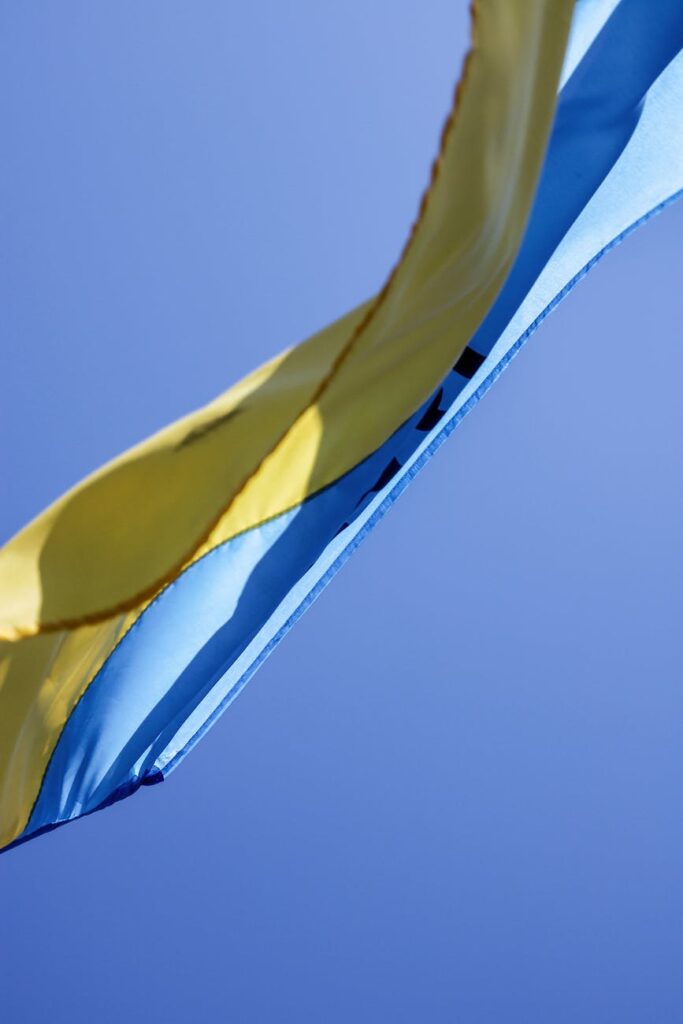
Strana.ru, 11/25/23 (Translation by Prof. Geoffrey Roberts)
Yesterday’s statement by David Arakhamiya [leader of Zelensky’s Servant of the People fraction in Ukraine’s parliament] that the war could have ended in spring 2022 if Ukraine had agreed to neutral status and signed a peace treaty on this basis raises a great many questions.
Based on information from the media and other sources, it seems Russia was ready to leave, without a fight, all the territories it had captured after February 24, 2022, in exchange for Ukraine’s neutral status (i.e. its refusal to join NATO). Moreover, if German Chancellor Schröder is to be believed, Russia was ready to return the entire Donbass to Ukraine on terms of broad autonomy modelled on South Tyrol in Italy.
Ukraine would have liberated almost all of its territories (except Crimea) virtually without a fight. The many thousands of civilians and military personnel who died after April 2022 would still be alive. Ukraine, without losing a single soldier, would have regained regions the Ukrainian Armed Forces tried – with heavy losses and without much success – to liberate during this year’s counteroffensive. As for NATO, Ukraine still has no guarantee of joining the Alliance.
Why did the Ukrainian authorities refuse such a profitable agreement in spring 2022?
Arakhamiya makes two arguments: firstly, it would have been necessary to change the Constitution, and, secondly, there was no trust the Russians would fulfil the agreement.
Both arguments are, to put it mildly, problematic. Yes, it is forbidden to change the Constitution during martial law, but if desired, a way out could have been found to a technical problem by the necessary political will (and since the Ukrainian authorities were negotiating about this at all, they must have seen some options). As for trust, this is an even stranger thesis, since according to the agreement, it was not Ukraine that had to withdraw troops, but Russia. Iin exchange, moreover, only for a decision on a neutral status, which could have been revisited at any time. The issue of trust – whether to “jump or not” – was primarily Moscow’s problem, not Kiev’s.
Subsequently, the Ukrainian authorities named another reason for the refusal – the tragedy in Bucha. However, if we recall Zelensky’s statements at that time, immediately after the tragedy he said that negotiations with the Russian Federation still needed to be conducted.
“Every such tragedy, every such Bucha, will hit you on the wrist in one or another negotiation. But we must find opportunities for such steps,” Zelensky said on 5 April 2022. It was only later that his statements became more categorical.
Hence the president’s main motive for refusing to conclude an agreement with Putin in 2022, is said to be that (perhaps under the influence of the arguments and promises of Western allies) he came to the conclusion that Russia was not ready for a big war and that Ukraine with Western help could completely defeat the Russian army and dictate to Moscow its peace terms, which would include the withdrawal of Russian troops to the 1991 borders, the payment of reparations, etc.
That is, figuratively speaking, Zelensky chose a pie in the sky instead of the bird in his hand.
At the same time, for those who remember the situation at the beginning of April 2022, it is difficult to believe the Ukrainian authorities could have felt so optimistic. The Russian army, having withdrawn troops from the north of Ukraine, launched an offensive in the east – in the Kharkov, Donetsk and Lugansk regions, and the advance of Russian troops continued in the completely surrounded Mariupol. The Ukrainian army experienced a growing hunger for shells. The first deliveries of Western howitzers and shells for them began only in mid-April. And “Hymars” appeared only in June. At that time, no one spoke about the supply of Western tanks and long-range missiles. The United States even blocked the supply of Soviet-style aircraft. In Russia itself there were still no signs of internal unrest. On the contrary, it became clear that its economy had not collapsed under the sanctions, that it had withstood the main blow.
In such conditions, it seems almost incredible that Zelensky could have refuses the extremely attractive “blue tit” of Russia’s withdrawal from almost all occupied territories of Ukraine without a fight, believing in the possibility of getting the “crane” in the form of Moscow’s surrender (which, as we know, hasn’t happened yet).
There must have been some compelling circumstance for Kyiv to reject such favourable conditions for ending the war in spring 2022.
What kind of circumstance became clear from the same interview with Arakhamiya.
He reported that the then British Prime Minister, Boris Johnson, came to Kyiv and said that “we won’t sign anything with them at all, let’s just fight.”
The question arises: what exactly did Johnson mean by “we won’t sign anything with them?” There can be only one answer: Western countries refused to give joint guarantees with Russia about the security of Ukraine, which must have been attached to the peace treaty and the neutral status agreement.
Actually, Arakhamiya directly said this: “We were advised by Western allies not to agree to ephemeral security guarantees, which at that time were impossible to give at all.”
Let us recall that according to the then plan, security guarantees were to be given by Russia, leading Western countries and a number of other major world powers. But if NATO countries refused to give guarantees and only the Russian Federation and, possibly, China and Turkey gave them, this would, in fact, mean a complete break in Ukraine’s relations with the Western world. Which Zelensky, naturally, could not do.
In other words, it was the position of the Western allies – “let’s just fight” – that had a decisive influence on the decision of the Ukrainian authorities to abandon any agreement with the Russian Federation in spring 2022.
In this regard, one of the key questions concerning further developments is whether the Western position has changed. Recently, one can constantly find reports in the media that the leaders of the United States and the EU are actively pushing the Ukrainian authorities to negotiate with Russia. However, there is no official confirmation of this – only information with reference to certain sources. Publicly, both the Ukrainian authorities and the authorities of Western countries emphasise that they are not prepared to compromise with the Russian Federation and continue to demand the withdrawal of troops to the 1991 borders.
How things stand in reality will largely become clear from the military and financial assistance provided by Ukraine’s allies – if it is indeed significantly limited (as a number of media outlets predict), it would signal the West’s concept has changed compared to spring 2022.
In his interview, Arakhamiya reiterated Kyiv’s position on negotiations, saying they are not profitable at the moment, since “our negotiating position is very bad.”
But on whose side is time working? If in 2022 it was possible to end the war by liberating almost the entire territory of the country without a fight in exchange for neutral status, now there are no such options. And the alternative is completely different – a long war with all its victims and risks, or peace/truce along the front line with the actual consolidation of Russian control over the occupied territories (and, it is possible, this will also be accompanied by additional demands in the form of the same neutral status, for example).
The main thing is what the conditions and negotiating positions will be in the future, and whether Ukraine’s authorities understand that these may turn out to be even worse than they are now.


